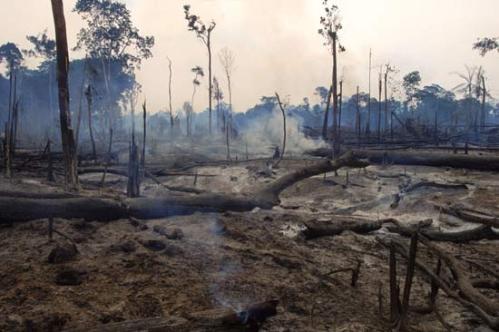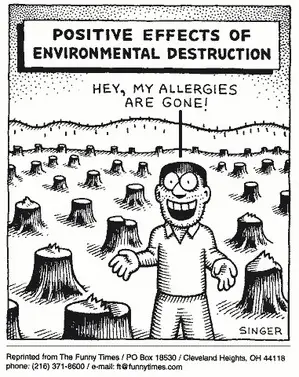
It is at increasingly alarming rates at which deforestation runs right now. More than 80% of the forested areas have been compromised since the year 2003. If you try to take a look at the satellite overviews of deforested sites, you can almost actually see that there is nothing left of the green lands that we richly used to possess.
Now, you can only watch bits and pieces of it floating separately and widely away from each other. Controlling deforestation is a controversial issue these days; and the means of plotting the rate is available for man to use. However, man could be the only key for the future survival of the planet. Without much enthusiasm and care for the remaining part of nature, it is likely to flourish one day without us knowing about it.
The Earth is totally threatened by the loss of nature because it remains to be our number one hope in breathing and living on this planet. Unbeknownst to many, the biggest forests are the homes of carbon and the lungs of the earth. Without them functioning properly, our vital means to live will be lost; and there is no way of taking it back anymore. The support nature gives us should be repaid with utmost care and affection. Man should follow the path to nature restoration before everything else gets out of control.
Simple Ways You Can Do To Preserve Nature
There are complex ways where we can reach our hands out to nature. First, distinguish environmental necessities from luxuries. The latter are the ones that are nice to have but are actually costless. Necessities are the basic things we must have in order to survive. Combat ecological change through knowing what can be eliminated and what should be retained. All that threatens nature, safety of the people, and health should be disregarded.
Simple ways such as saving paper, fixing car fumes, and lessening energy consumption could always be ways to help nature minimize the floating carbon dioxide in the air. These greenhouse gasses are answerable for destroying the ozone, which then is responsible for the UV rays coming in. You see, if we do not take part in the preservation of wildlife, we can lose the battle at any time of the day.
Bigger contributions to nature's rehabilitation are replanting and controlling the degree of damage to the forested lands. Government policies should strictly be implemented and followed. Illegal use of the forest and its natural inhabitants should thus be constrained. If people are governed by laws which threaten them, they will surely back off from any unlawful and illegitimate activity.
The Future Paths
The future path of deforestation actually depends on human answers and decisions. The endpoint is obviously fatal if things continually get out of hand. Various remodeling and rebuilding efforts are on the move right now; and if the trends continue to rise the good way, the scenario can be totally overwhelming.
Government reinforcement should clearly be demonstrated to finally control deforestation rates and to put unlawful programs to an end. Creation of repression and reserves are the measures used to finally stop unauthorized practice. If things go about this way, and if people are eager to follow, the future path of the world can clearly be predicted.
The critical step to controlling deforestation is asking people to join. Without the world's largest number of inhabitants on the move, our drive to halt deforestation could not take place. The support that the government and the citizens can give is the most crucial ingredient to finally say goodbye to such unlawful practice.





















